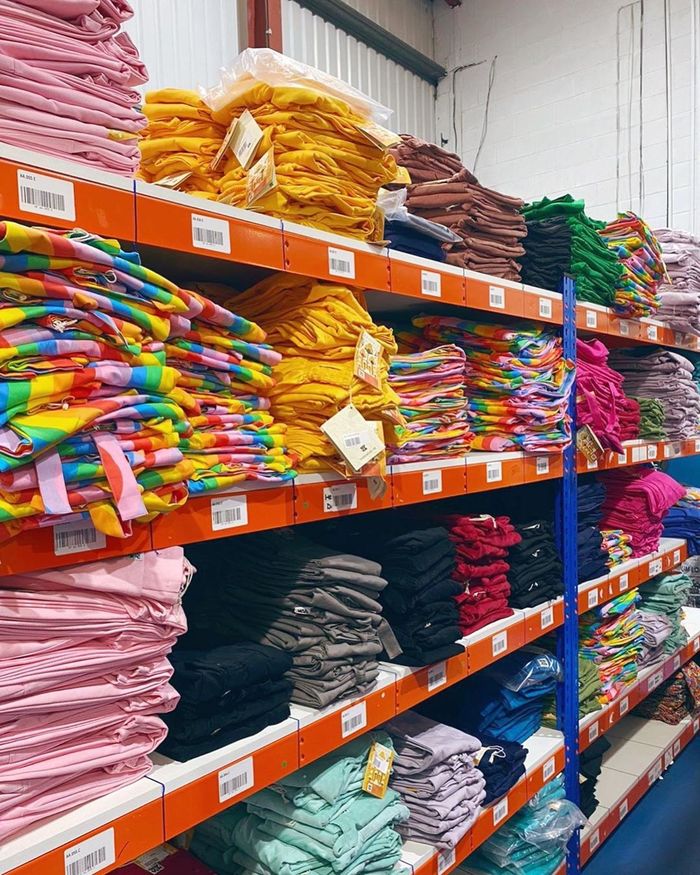Pay now, pay later: the meaning of Black Friday in 2020
Claudia Davey examines the consequences of Black Friday’s call to consume in a year of chaos
Concerns have long been raised over Black Friday’s promotion of mindless purchasing. But in a year of economic loss, increased unemployment and the death of small businesses, Black Friday has become a dystopic satire of itself. Amidst the relentless tragedy and turmoil of this year, companies have still found the time to tell us, with renewed vigour, to buy more stuff. Many have suggested that spending money is the solution to our problems. Death rates may be rising, the economy may be crashing and the planet may be burning, but all can be cured by a Black Friday bargain. Contrasted against the end-of-the-world backdrop of 2020, Black Friday appears as what it really is: a reminder that above all else, we must consume.
It is crucial that Black Friday is not seen as detached from the chaos of this year. The head-in-the-sand enthusiasm of corporations is a deliberate sleight of hand, an attempt to repackage their role in our world. Thoughtless consumerism is not the cure to the modern crisis, it is one of its greatest causes. Unconstrained capitalism and a throwaway consumer culture lie at the heart of many of our most pressing issues, from the climate crisis to precarious working conditions. Cut-throat deals and instantaneous delivery come at a very precise cost. Profit-over-everything production means no social distancing or sick pay, no employment stability, no regard for environmental impact.
Black Friday does little more than reward such behaviours. It offers one more chance for us to funnel money into unethical and bloated corporations, many of which have profited from the same crisis that has caused most of us suffering. The unending pursuit of profit and the suppression of human living standards are not unrelated phenomena. Instead, they are deeply entwined: one must be traded directly for the other.
“Now, as we gain increasing insight into the literal blood, sweat and tears that goes into the relentless consumerism of our times, it is clear that the aftereffects of our purchases aren’t really so delayed.”
A few years ago, it was easier to feign ignorance. I remember being an early teen and shopping at Primark, aware deep down that an £8 dress was probably too good to be true. This week, dresses were sold online for a hundredth of that price. Black Friday has become a sick competition in which brands proudly show off how low they can go, how quickly the can flog off products that no one really wants or needs. Recent years have also seen increased insight into the consequences of such flagrant bargains. There is no longer any ‘probably’ about it. We know that fast fashion brands are paying UK workers less than half of minimum wage. We know that sweatshop employees are forced to work in unsafe conditions abroad. We know that fast fashion sends mountains of clothes to landfill whilst using endless resources, driving the climate crisis that threatens us all.
Back in those more ignorant days, an apt metaphor for the effects of the fast fashion industry could be found in the ‘buy now, pay later’ schemes that many of them adopt. Much like the actual cost of our purchases, we could put off the social and environmental effects of their production indefinitely. Now, as we gain increasing insight into the literal blood, sweat and tears that goes into the relentless consumerism of our times, it is clear that the aftereffects of our purchases aren’t really so delayed. The consequences of Black Friday and its unending consumerism are no longer some far-off thing occurring elsewhere in the distant future. Instead, they are tangible and very real. Someone is being forced to work in unsafe conditions, potentially contracting coronavirus. Someone is working back-to-back shifts without breaks. We are all increasingly threatened by the looming environmental crisis that is hurtling down the tracks. The cost can no longer be delayed. Instead, we have been entrapped in a system of pay now, pay later: someone, somewhere, is paying now, and we will all be paying later.
 Interviews / You don’t need to peak at Cambridge, says Robin Harding31 December 2025
Interviews / You don’t need to peak at Cambridge, says Robin Harding31 December 2025 News / Unions protest handling of redundancies at Epidemiology Unit30 December 2025
News / Unions protest handling of redundancies at Epidemiology Unit30 December 2025 Comment / What happened to men at Cambridge?31 December 2025
Comment / What happened to men at Cambridge?31 December 2025 Features / ‘Treated like we’re incompetent’: ents officers on college micromanagement30 December 2025
Features / ‘Treated like we’re incompetent’: ents officers on college micromanagement30 December 2025 Theatre / We should be filming ADC productions31 December 2025
Theatre / We should be filming ADC productions31 December 2025








